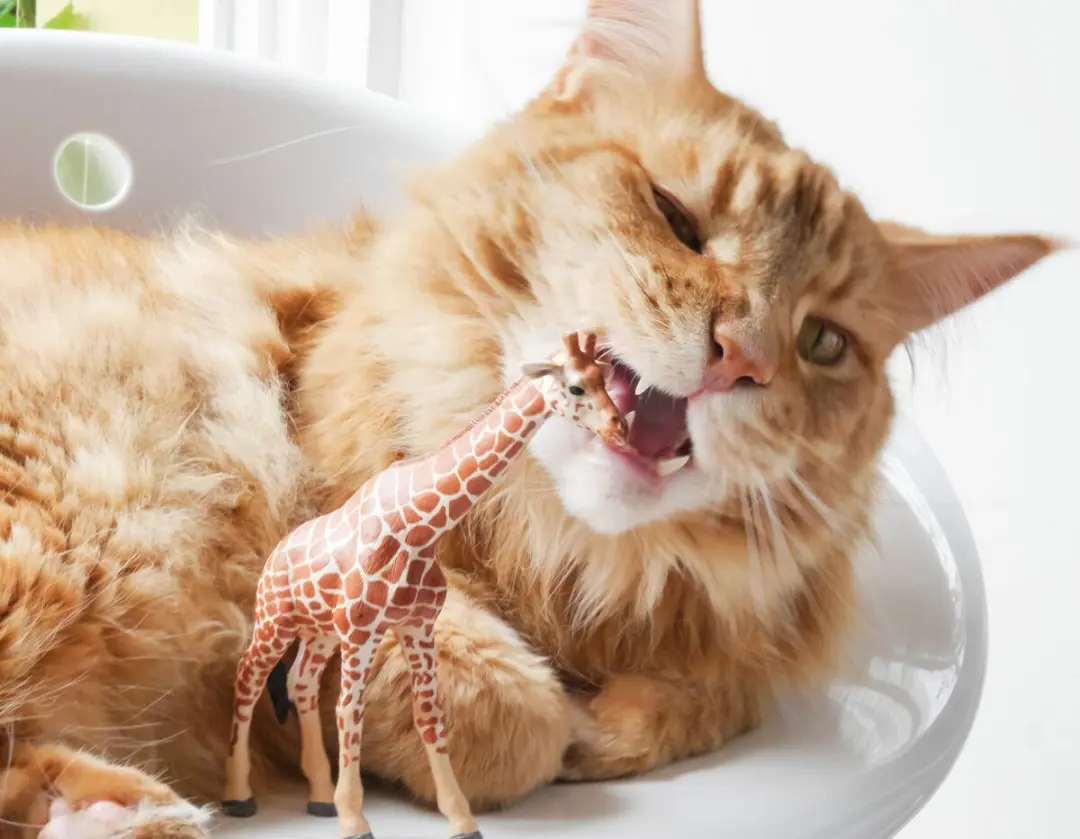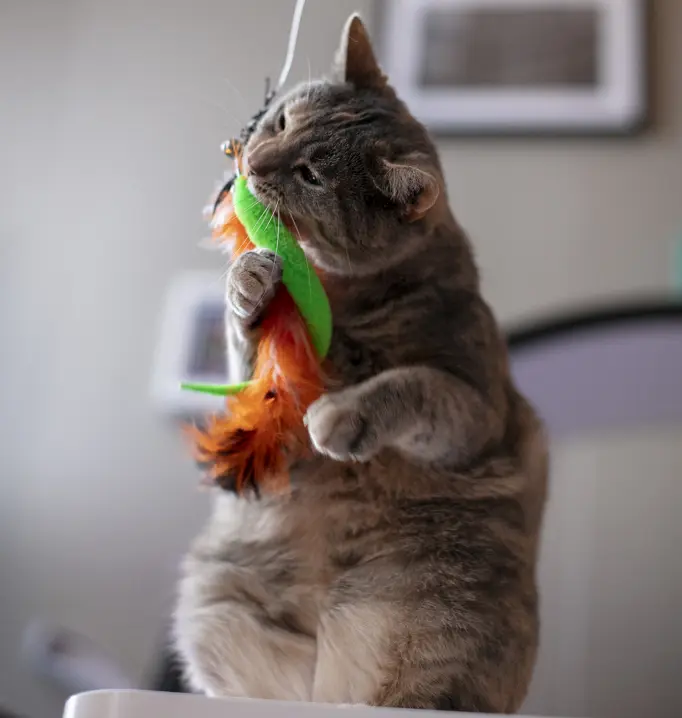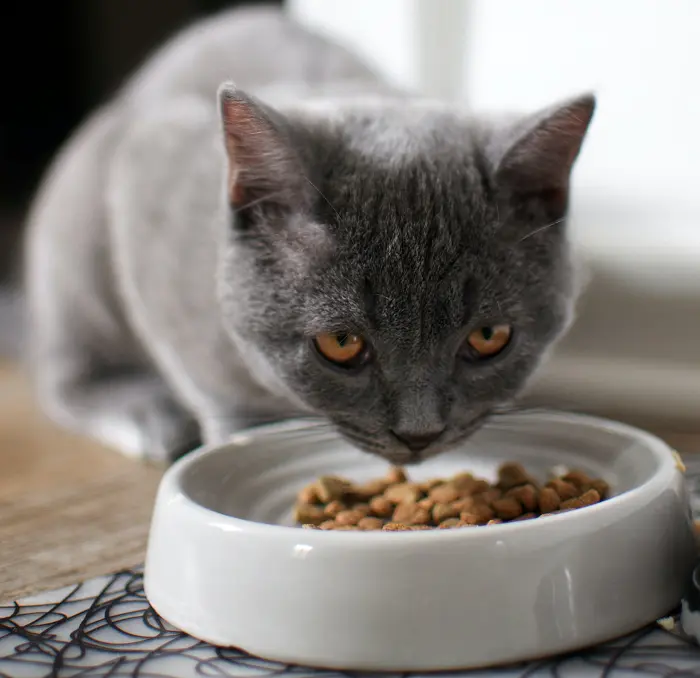7 Tips to Prevent Your Cat From Excessive Chewing
Cats are among the most popular house pets all over the world. The friendly felines have taken place in everyone’s hearts and homes. Recently, more cats have been homed than ever before.
While cats make good domestic pets, their maintenance can be difficult for people without prior knowledge. They must be fed, and groomed, receive bonding time with the owner, and have a clean litter box.

Cats also have many other traits and characteristics. For example, they have a natural urge to chew, which can destroy household items if left unchecked.
However, there are several things you can do to prevent your cat from excessively chewing. These tips can help you keep your cat entertained.

#1. Entertain Your Cats
Keep your cat entertained. If your cat is bored, it’ll do crazy things, like climbing your Flat Screen TV. There are effective ways to keep your cat off your TV; however, boredom can lead to various other behavioral problems, including excessive chewing.
Make sure your cat has plenty of opportunities to play and explore. Give it plenty of playtimes anytime you are home. Consider getting a second cat as a companion if your cat spends a lot of time alone. You can also try interactive feeders and puzzle toys to stimulate them mentally. Keeping your cat entertained will prevent your cat from chewing things.
#2. Have a Nutritious Diet for Your Cat

Monitor your cat’s diet. Some cats may chew excessively due to a dietary imbalance. Make sure your cat is getting all the nutrients they need.
You can do this by providing a balanced diet and considering switching to a different type of food if you suspect a food allergy is to blame. You may also want to try adding a digestive enzyme to their food, which can help digestion and prevent stomach discomfort.
Too much dry food or treats can be harmful to them as well. Switch it up between dry and wet food for a nutritious meal and prevent your cat from excessively chewing.
#3. Check and Address Your Cat’s Dental Concerns
Cats often display some odd or unusual behavior. For example, sometimes you will notice your cat chewing on nothing. This can be due to multiple dental or oral problems that must be addressed immediately.
Cats can chew excessively if they are experiencing dental issues, such as tooth decay or gum disease. Regular dental checkups and cleanings can help prevent these problems.
You can provide your cat with chewable dental toys to help keep its teeth healthy. Brushing your cat’s teeth at least once a week is also important, if possible. Please read here: How To Keep Cats Teeth Clean Without Brushing
#4. Chewable Items for Cats
Cats have a natural urge to chew. If your child’s toys or other items are lying around the house, your cat might pick them up and chew on them.
So providing them with a variety of toys and chewable items can help satisfy this urge and prevent them from chewing on inappropriate items. This can include catnip toys, interactive toys, and chewable dental toys.
Rotating the toys regularly is important to keep your cat interested and engaged. If your cat gets bored, it will stop using the toy and return to its habit of excessively chewing. You can find good cat toys and other helpful information on petloverguy.com.
#5. Provide a Surface for Your Cat to Scratch
Allow your cat access to a scratching post or other scratching surfaces. Cats have a natural urge to scratch, and providing them with a scratching post or other scratching surfaces can help prevent them from chewing on furniture or other household items.
Put the posts in an easily accessible area for your cat. If possible, put them in multiple locations around your home. For the first few days, train your cat to use the surfaces. Ensure the scratching post is tall enough for your cat to stretch and that the surface is rough enough to satisfy their scratching needs.
A simple, inexpensive addition to your house can prevent your cat from excessively chewing.
#6. Look Out for Underlying Medical Conditions
If your cat is sick, they will try to hint at it to you in multiple ways. For example, they might have a stomach ache from drinking contaminated water. You can prevent your cat’s water bowl from being infested with worms.
However, it is essential to address any underlying medical conditions immediately. For example, some cats may chew excessively due to medical conditions, such as feline stomatitis or pica.
If you suspect your cat has a medical condition, it’s important to consult your veterinarian to rule out any underlying issues. Additionally, providing additional resources such as cat grass or natural remedies can help alleviate symptoms and reduce the urge to chew.
#7. Train Your Cat Consistently
Be consistent with your training if you are trying to get your cat out of its excessive chewing habit. Consistency is vital in training your cat not to chew on inappropriate items.
Use positive reinforcement techniques, such as rewarding your cat with treats or praise when they chew on appropriate items and redirecting their attention when they chew on something they shouldn’t. Additionally, patience is important as it may take time for your cat to learn.
Final Thoughts
Preventing your cat from excessive chewing takes patience, consistency, and a willingness to try different techniques.
You can help prevent your cat from excessive chewing and protect household items by providing them with plenty of toys and chewable items, keeping them entertained and monitoring their diet, addressing any dental or underlying medical problems, providing scratching posts, and being consistent with your training.
It’s important to remember that every cat is different, so you may need to try a few different techniques to find what works best for your feline companion. Consult with your veterinarian if you suspect any underlying medical issues.
